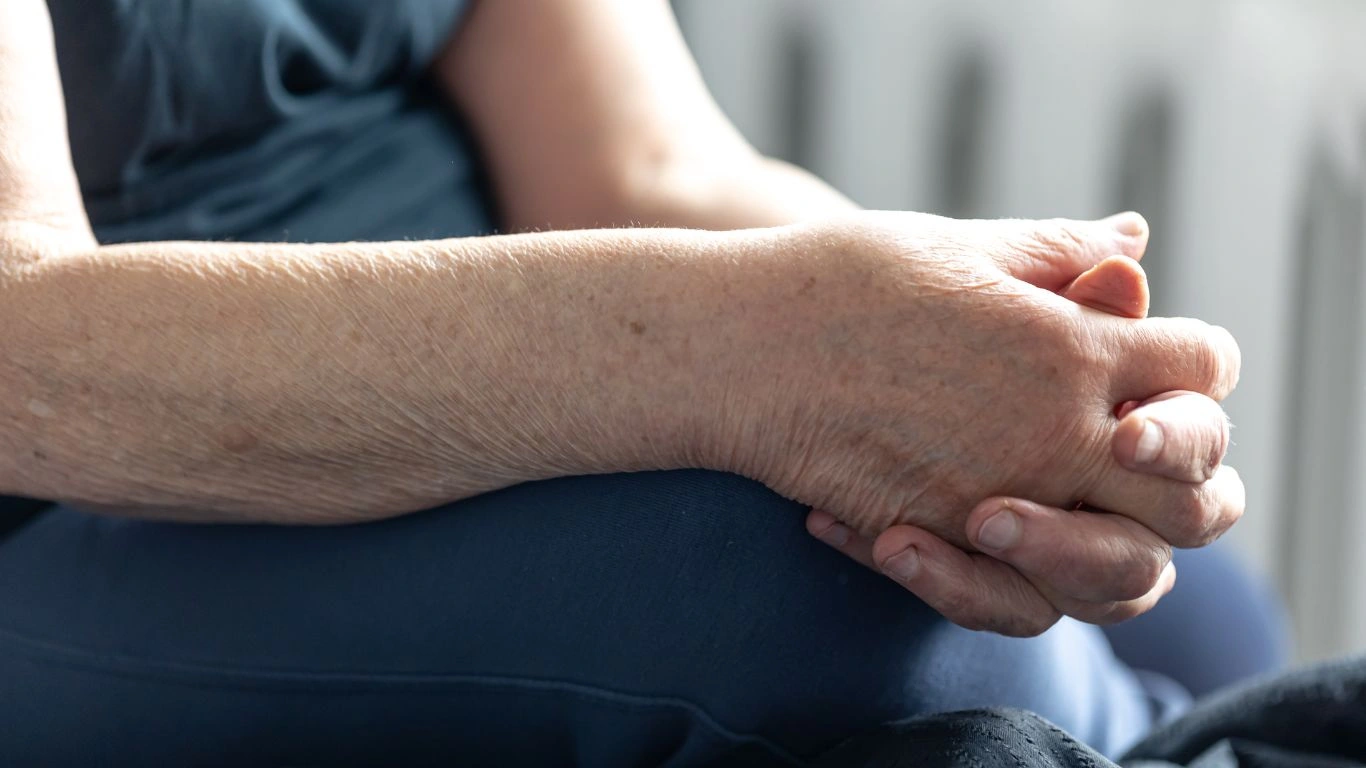Why Night Pain with RA Gets Worse and How to Get Real Relief
If you’ve ever found yourself wide awake at 3 a.m. because of throbbing joints, you’re not alone—and you’re definitely not imagining things. As a rheumatology nurse practitioner, I’ve had so many patients sit across from me, bleary-eyed and frustrated, asking, “Why is the pain always worse at night?” It’s a real issue, and it’s not just uncomfortable—it’s downright disruptive. Night pain with RA causes more than just poor sleep; it chips away at your quality of life, day by day. So let’s unpack what’s really going on when the sun goes down and the joints start to ache.
What’s Really Behind Night Pain in Rheumatoid Arthritis?

First off, it’s important to know that RA doesn’t follow a 9-to-5 schedule. The inflammation that comes with rheumatoid arthritis (RA) can flare up anytime, but it has a sneaky tendency to make itself known when you’re trying to rest. That said, it’s not just one single thing that causes this nighttime misery—it’s a mix of biological and lifestyle factors that come together in just the wrong way.
1. Natural Hormonal Fluctuations
This one surprises a lot of people. Our bodies produce different levels of hormones throughout the day. At night, levels of cortisol—a natural anti-inflammatory—tend to drop. For someone living with RA, that means the “brakes” on inflammation come off, and joint swelling and stiffness can sneak up during the wee hours.
2. Lack of Movement While Sleeping
When you’re up and moving during the day, your joints are lubricated through motion. But at night, as you lie still, your joints may stiffen. This lack of movement allows inflammatory fluids to pool around the joints, which leads to stiffness and pain when you wake—or even while you’re tossing and turning.
3. Sleep Positions That Don’t Help
I can’t tell you how often I’ve had patients realize that their sleeping posture is making things worse. If you’re curling up too tight or sleeping with pressure on already inflamed joints, it can make your pain more intense. Sometimes, just changing your pillow or mattress can make a huge difference. Sounds simple, but I’ve seen it work!
4. Mental Stress & Anxiety
Yep, stress makes everything worse—including RA symptoms. Anxiety increases the body’s production of certain chemicals like cytokines, which promote inflammation. Plus, stress can disrupt your sleep, making you more aware of every ache and throb in your body.
How Night Pain Disrupts Your Life (More Than Just Lost Sleep)

Missing sleep isn’t just about feeling tired. Chronic pain at night sets off a chain reaction. You wake up groggy, maybe even cranky. You’re less focused at work or just don’t have the energy to get through the day. Over time, this can lead to fatigue, depression, and even worsening pain perception. It’s like a loop that’s hard to break—but not impossible.
Real Talk from the Clinic
One of my longtime patients told me that her RA pain at night was so intense, she used to dread bedtime. She’d end up sleeping in her recliner with heating pads wrapped around her knees. That’s no way to live. But after we dug into her routine—what time she ate, how she managed stress, even the supplements she was taking—we found a combo that reduced her pain dramatically. It’s not always about more meds. Sometimes, it’s about tweaking the small things.
Common Night Pain Triggers to Watch Out For

- Overexertion during the day (especially new exercises or too much walking)
- Poor sleep hygiene (screens before bed, irregular bedtime)
- Heavy meals or alcohol late in the evening
- Cold environments without adequate joint support
- Flare-ups due to weather changes or stress
Even as a nurse practitioner, I’ve had my own joint aches from old injuries, and while it’s not RA, I can absolutely relate to how frustrating night pain can be. The key is understanding what your body is telling you and figuring out what your personal triggers are. It’s rarely a one-size-fits-all solution—but there is a solution.
What Can Help Ease Night Pain with RA?

Let’s get into the good stuff—what actually helps. I’ve worked with hundreds of patients who struggled with night pain with RA causes that seemed relentless. The good news? With the right tools and changes, many of them now sleep through the night without constantly waking up in agony. It’s not always a one-fix wonder, but a combination of lifestyle adjustments and targeted support that really makes the difference.
1. Create a Joint-Friendly Bedtime Routine
We spend so much time thinking about skincare routines and what shows to binge before bed—but what about a nighttime plan specifically for your joints? A few of my go-to suggestions include:
- Warm compress or heating pad for 15-20 minutes before bed
- Gentle stretching or yoga for stiff joints
- Magnesium soaks or warm Epsom salt baths (works wonders, honestly!)
- Supportive pillows to cushion pressure points—between knees, under arms, wherever it aches
One of my patients, an avid gardener, swore by soaking her hands in warm water with a drop of lavender oil every night. She said it wasn’t just soothing—it became her mental signal to wind down.
2. Adjust Your Sleep Environment
RA doesn’t just affect your joints—it reshapes how you think about comfort. I always encourage patients to get a little picky about their sleep setup:
- Try a mattress topper that cradles pressure points (especially hips and shoulders).
- Keep your bedroom slightly cool to reduce inflammation—but not so cold your joints stiffen.
- Limit screen time an hour before bed to let your body naturally ease into sleep mode.
Sometimes it’s the smallest thing—like changing the firmness of a pillow or sleeping with a weighted blanket—that leads to fewer wake-ups during the night.
How Medications Can Impact Night Pain

Alright, let’s talk meds. I always say—yes, they’re important, but timing and type matter. Some people notice that their RA medications wear off by bedtime. If that’s you, don’t be shy about bringing it up with your provider. We often adjust schedules so anti-inflammatory effects last through the night.
Timing Is Everything
In many cases, shifting the dose of NSAIDs or corticosteroids to later in the day helps smooth over those rough nighttime hours. I’ve had patients take their evening meds with dinner instead of lunch and notice a real difference by bedtime.
Other Medication Tweaks That Might Help
Sometimes we introduce low-dose nighttime medications—like a muscle relaxer or low-dose tricyclic antidepressant—not because of mood issues, but because they help break the pain-sleep cycle. It’s always about balance: relieving pain without knocking you out completely or making you feel groggy in the morning.
Don’t Underestimate Food and Supplements

Over the years, I’ve become a huge believer in the role diet plays in managing RA. Inflammatory foods like processed carbs and too much sugar can sneakily worsen pain. And when you’re trying to rest, any extra inflammation just adds fuel to the fire.
Anti-Inflammatory Food Swaps
- Swap white rice for quinoa or brown rice
- Choose berries and leafy greens instead of sugary snacks
- Add omega-3-rich foods like salmon, walnuts, or flaxseed
Oh, and turmeric! I personally add a pinch to my evening tea or warm almond milk. It’s subtle but has anti-inflammatory benefits that may help reduce joint stiffness.
Supplements I’ve Seen Work for Some Patients
- Magnesium (especially for sleep and muscle relaxation)
- Fish oil (omega-3s are inflammation-fighting powerhouses)
- Vitamin D (many folks with RA are deficient without knowing it)
Just make sure to run any new supplement by your rheumatology provider or pharmacist to avoid interactions with your current treatment plan. It’s not about throwing everything at the wall—it’s about making thoughtful choices based on your needs.
When to Reach Out to Your Provider

If your night pain with RA causes you to regularly lose sleep, cancel plans, or just feel exhausted the next day—don’t try to power through it alone. That’s your body waving a red flag. I tell all my patients: if the strategies you’ve tried aren’t cutting it, it’s time for a deeper conversation. Your treatment plan might need a tune-up.
RA isn’t predictable, and what worked last month might not work today. That’s why ongoing, open communication is so important. I’ve had patients go years without adjusting their meds or routines, thinking, “This is just what RA feels like.” But life doesn’t have to be that hard. Sometimes, a few smart changes make all the difference.
How Mind-Body Techniques Support Nighttime RA Relief

Let’s talk about something that often gets brushed off—the brain-body connection. In my practice, I’ve seen firsthand how calming the mind can dial down pain perception, especially when it comes to those restless nights. When it comes to night pain with RA causes, sometimes the answer isn’t just in a pill bottle—it’s in how we manage stress, anxiety, and even how we breathe.
Meditation and Breathwork
You don’t need to become a Zen master to benefit from mindfulness. Even five minutes of guided breathing or body scanning before bed can reduce pain intensity and help with falling asleep faster. I’ve had folks who were skeptical at first—one patient literally said, “Tarra, I’m too old for this woo-woo stuff”—and now she swears by her nightly meditation app. Go figure!
Progressive Muscle Relaxation (PMR)
This technique involves slowly tensing and then relaxing each muscle group, working your way through your body. Not only does it reduce overall tension, but it also helps you tune in to where you’re holding pain or stress. Think of it as a gentle nightly reset for your joints and your mind.
Journaling and Tracking Flare Patterns
Nighttime flares don’t just happen randomly. Often, there’s a pattern—and journaling helps uncover it. I always encourage my patients to keep a little notebook or use a tracking app to log meals, moods, weather, stress, and sleep. Within a few weeks, patterns usually start to pop up.
Empowering Yourself with RA Education

Knowledge really is power—especially with chronic illnesses like RA. The more you understand what’s happening in your body, the better equipped you are to make changes that work. I’m not saying you need to become a medical textbook, but staying in the loop with the latest treatments, lifestyle tips, and research can shift you from feeling helpless to feeling in control.
Reliable RA Resources I Recommend
- https://www.arthritis.org/ – Their resources are solid, especially for understanding new treatments and coping tools.
- https://www.rheumatology.org/ – Great for clinical guidelines and patient education handouts.
- https://www.mayoclinic.org/ – For trusted, easy-to-digest info with a patient-first perspective.
And let me say this—don’t underestimate your own story. When patients learn to advocate for themselves, share their experiences, and ask the hard questions, that’s when real breakthroughs happen. You know your body better than anyone else.
Setting Realistic Expectations and Boundaries
This part can be tricky, especially for my fellow go-getters who hate slowing down. But managing RA isn’t about pushing through pain—it’s about listening to your body and adjusting before things spiral. Night pain is often your body’s way of saying, “Hey, something’s off.” Maybe you overdid it during the day, maybe it’s stress, or maybe your treatment needs a tweak.
Tips for Setting Boundaries with RA
- Say no without guilt. If you need to skip that late dinner or workout, do it.
- Plan rest breaks into your day—even if it’s just 10 minutes to stretch or breathe.
- Ask for help. Whether it’s family, friends, or co-workers—let them in on how they can support you.
One of my patients, a teacher, finally asked her principal for a flexible schedule during a flare. They worked it out, and she told me it was a game-changer. It took courage, but her sleep—and her joints—thanked her for it.
Final Thoughts on Tackling Night Pain from RA
Living with RA is hard enough. Not sleeping because of pain? That’s next-level exhausting. But the encouraging part is—you have more tools than you might think. Whether it’s adjusting medications, fine-tuning your routine, shifting your diet, or managing stress, there’s always a path forward.
I’ve walked alongside hundreds of patients on this journey, and I’ve seen incredible resilience. Every person’s RA story is unique, but no one has to deal with night pain in silence. You deserve rest. You deserve relief. And you deserve to feel heard.
References
Disclaimer
This article is for educational purposes only and does not replace medical advice. Always consult with your rheumatologist, nurse practitioner, or healthcare provider before making any changes to your treatment plan or lifestyle.

Tarra Nugroho is a dedicated Nurse Practitioner with a strong foundation in family and preventive care. She brings both compassion and clinical expertise to her practice, focusing on patient-centered care and health education. As a contributor to Healthusias.com, Tarra translates medical knowledge into clear, empowering articles on topics like women’s health, chronic disease management, and lifestyle medicine. Her mission is simple: help people feel seen, heard, and informed—both in the clinic and through the content she creates. When she’s not caring for patients, Tarra enjoys weekend hikes, plant-based cooking, and curling up with a good health podcast.







